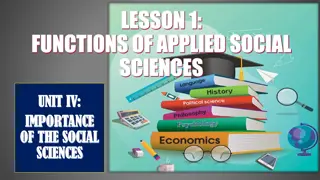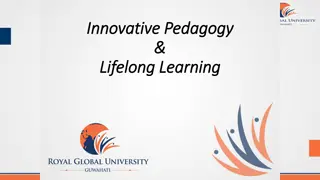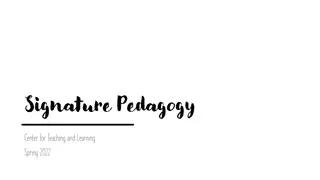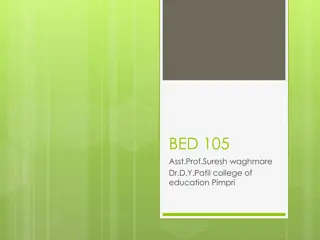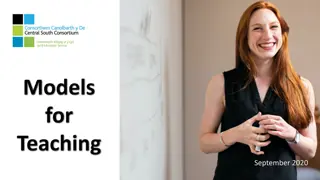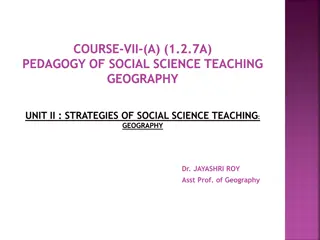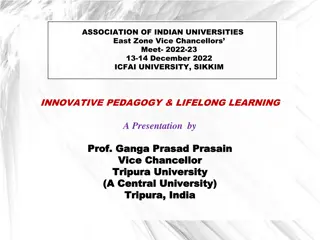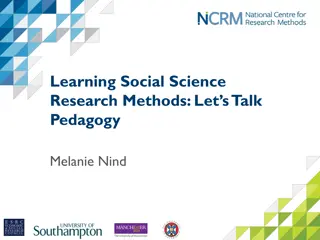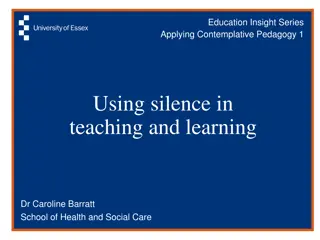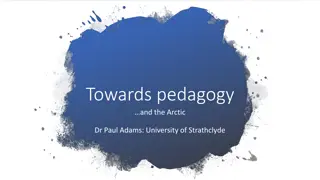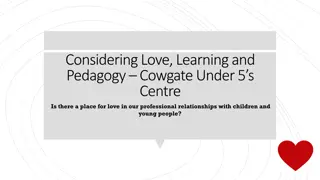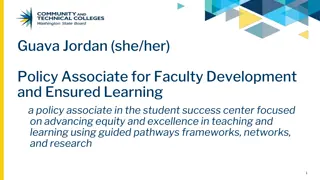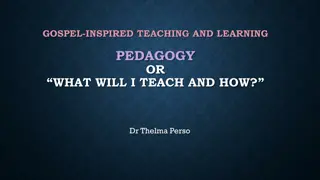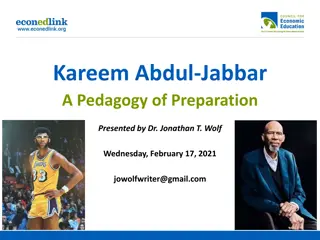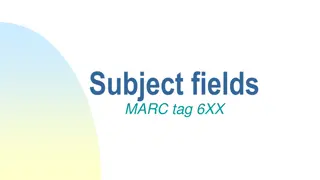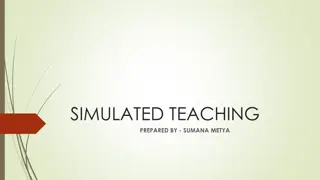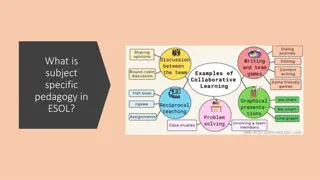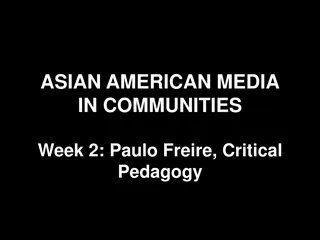Enhancing Social Sciences Teaching Through Subject Specialist Pedagogy
Subject specialist pedagogy in social sciences focuses on effective teaching methods to improve student learning outcomes by deepening understanding and application of subject matter. It emphasizes personalized strategies, active learning, and fostering critical thinking skills. Key elements include linking prior knowledge, promoting dialogue, and incorporating diverse activities to engage students effectively.
Download Presentation

Please find below an Image/Link to download the presentation.
The content on the website is provided AS IS for your information and personal use only. It may not be sold, licensed, or shared on other websites without obtaining consent from the author. Download presentation by click this link. If you encounter any issues during the download, it is possible that the publisher has removed the file from their server.
E N D
Presentation Transcript
SUBJECT SPECIALIST PEDAGOGY WHAT IS SUBJECT PEDAGOGY IN SOCIAL SCIENCES? WHY IS IT IMPORTANT?
PEDAGOGY??? Pedagogy is defined simply as the method, and practice, of teaching. It encompasses teaching approaches, teaching theory and feedback and assessment. (TES 2023) Pedagogy is another word for education, the profession and science of teaching. https://www.vocabulary.com/dicti onary/pedagogy https://www.tes.com/magazine/tea ching-learning/general/what-is- pedagogy
IS THERE SUCH A THING AS SUBJECT SPECIALIST PEDAGOGY? What is it? What does it look like?
WHY SUBJECT SPECIALIST PEDAGOGY? Having a well-thought-out pedagogy can improve the quality of your teaching and the way students learn Helping students gain a deeper grasp of fundamental material. Being mindful of the way you teach can help you better understand how to help students achieve deeper learning in your subject. The proper approach helps students move beyond simple forms of thinking as defined in the Bloom s taxonomy pyramid, like basic memorization and comprehension, to complex learning processes like analysis, evaluation, and creation. Students expand their knowledge base, but also understand how to use their learnings in authentic and relevant to their real-world (subject focused) contexts. Through your pedagogical strategies, students can also learn what approaches work best for them: Which learning activities and learning styles they tend to gravitate towards and how to develop concepts and build mental models to further their learning are all important elements to consider. Overall, active learning makes student engagement rise. Students get to participate in personalized teaching strategies, rather than be mere spectators in the classroom. https://tophat.com/blog/pedagogy/
WHAT ARE SOCIAL SCIENCE SUBJECT SPECIALIST STRATEGIES/ACTIVITIES? Examples please Strategies you have used. Strategies you have seen used
WHAT ARE SOCIAL SCIENCE SUBJECT SPECIALIST STRATEGIES? 1. Link to prior subject knowledge 2 Define boundaries (safe space) 3. Link to previous learning 4. Connection Draw on relevant content e.g. current and group appropriate 5. Connection Ensure inclusive content 6. Provide opportunities to build productive learning relationships 7. Promote dialogue and discussion 8. Share learning with students, teaching is a two way process. 9. Use/adapt student contributions to maximize student interest. This can be planned or ad hoc 10. Satisfy diverse motivational needs e.g. pick tasks and examples carefully 11. Use a variety of activities 12. Teaching as inquiry i.e. problem solving, exploring, evaluating, questioning 13. Socratic questioning 14. Challenge beliefs
TYPES OF PEDAGOGY Socratic: Questioning: critical thinking reasoning Problem based Learning: acquire knowledge by devising a solution to a real-world problem: knowledge, comms skills and teamwork Collaborative pedagogy: Learner centred with learners working together: critical thinking, writing skills, interpersonal engagement Integrative pedagogy: Making connections using concepts, skills and experience Reflective pedagogy: Use of reflective opportunities and work on performance and concepts Critical pedagogy: Question and challenging prevalent beliefs and practices Constructivist pedagogy: Student-centered learning: Engaging students in activities that enable them to construct their own knowledge and encourages them to actively participate in the learning process
YOUR OWN PEDAGOGY/STYLE Create your own pedagogy, start by forming a personal philosophy of teaching statement. A a crucial step in the profession of teaching. This helps students manage their expectations about your teaching methods and better approach your curriculum.
PEDAGOGY, ANDRAGOGY AND HEUTAGOGY Pedagogy: Designs the learning process, imposes material, is assumed to know best. Andragogy: Enabler or facilitator, climate of collaboration, respect and openness Heutagogy: Develop the learner s capability. Cultivate a high degree of self-efficacy to apply competencies in novel as well as familiar situations. Enable learners opportunities to work creatively with others
PLENARY Subject specialist pedagogy and initial teacher training for the learning and skills sector in England: the context, a response and some critical issues https://www.tandfonline.com/doi/full/10.1080/03098770600965367 Generic pedagogy is not enough : Teacher educators and subject- specialist pedagogy in the Further Education and Skills sector in England https://www.sciencedirect.com/science/article/pii/S0742051X2031 4244 Roy Fisher &Keith Webb Times Educationa Supplement https://www.tes.com/magazine/teaching-learning/general/what-is- pedagogy https://www.structural-learning.com/post/pedagogy-for-teaching-a- classroom-guide https://tophat.com/blog/pedagogy/ https://www.uis.edu/colrs/teaching-resources/foundations-good- teaching/pedagogy-andragogy-heutagogy


